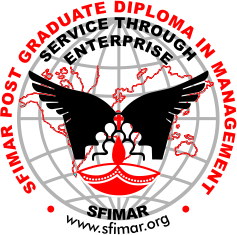STUDENTS DEVELOPMENT ACTIVITIES
To meet the objective of making our students ‘Corporate Ready’, the Career Management Centre identifies the gap between industry and academia. This gap is bridged by following a well-defined Training Program viz. ‘Student Development Program (SSDP)’. The corporate trainings, as identified in SSDP, are beyond the syllabus of the Programs and give an extra edge to the core curriculum. These trainings are conducted by corporate trainers and senior alumni with an expertise in the relevant field. This program is focused to enhance the employability traits of our students and thus enables them to get a decent job in the Industry.
To meet the objective of making our students ‘Corporate Ready’, the Career Management Centre identifies the gap between industry and academia. This gap is bridged by following a well-defined Training Program viz. ‘Student Development Program (SSDP)’. The corporate trainings, as identified in SSDP, are beyond the syllabus of the Programs and give an extra edge to the core curriculum. These trainings are conducted by corporate trainers and senior alumni with an expertise in the relevant field. This program is focused to enhance the employability traits of our students and thus enables them to get a decent job in the Industry.
Capacity Building Programmes
The Institute’s objective is to enhance the employability skills of its students by training them on soft skills, computer skills and technical skills as per the industry requirement.
The Career Management
Centre at SFIMAR takes many initiatives to groom students as per the industry requirements from the initial days. Over the years, the grooming program has become structured and defined as Student Skill Development Program (SSDP).
Personality Grooming & Corporate Grooming
New initiatives have been implemented in order to improve the overall personality, soft skills, attitude, positive thinking, wisdom, values and business ethics and other high delivery sustainable qualities among students by the Institute. The Career Management Centre is entrusted with the assignment of bringing in various experts in the above fields to impart their experience in professional life.
Mindfulness Centre
The Centre works at the intersection of neuroscience, mindfulness and positive psychology. This training cultivates greater self-acceptance, sharpness of mind and a sustained inner ability to counter stress. By changing the way of approach towards challenging situations, new solutions and opportunities can be arrived at. This Centre intends to cultivate awareness and attention to what is happening around us and creating a sense of being in the present moment which is ‘here and now’. It also helps in building awareness to one’s own feelings, sensations, and observing thoughts.
Peer-to-Peer Learning
Peer-To-Peer Teaching Style involves students teaching other students. A peer-tutor concept boosts the classroom learning process and makes it more interactive and interesting. Having a tutor who is of the same age level as them also helps in bridging the learning gaps amongst students. In order to improve the quality of Management education and its delivery mechanism and outcome, a number of initiatives have been proposed for the next five years and some of them have already been implemented. These initiatives also enhance SFIMAR’s position among peer group and industry through collaborations, consulting and advisory, faculty exchange, networking, and media relationship.
Remedial Sessions
Remedial coaching at SFIMAR aims at improving the academic skills of the students and raising their level of comprehension in subjects where quantitative, technical and laboratory work is involved. Remedial training is conducted by the core faculty members within the campus itself. Remedial coaching is being carried out in various subjects on weekdays before the commencement of regular classes and on Weekends after commencement of the regular classes. As a part of remedial sessions, Tutorial Sessions are also organized for each subject. Weak students are given more attention in these sessions to enhance learning. Remedial sessions are conducted by the respective subject faculty members after completion of the first class test where the slow learner students are identified.
Its main objective is to provide special support to students who are at risk of failure and drop out. As part of Remedial measures, precautionary steps considering the overall depletion in demand and various value additions are being planned along with the curriculum offered by the University. Mentoring sessions, counselling and extra support on the subject knowledge are provided to slow learners.

